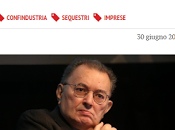 StartupID è la rubrica realizzata in collaborazione con Indigeni Digitali e dedicata al mondo delle startup.
StartupID è la rubrica realizzata in collaborazione con Indigeni Digitali e dedicata al mondo delle startup. Innanzitutto abbiamo chiesto a Gabriele che cosa è SportSquare Games e come è nata l'idea: si tratta di una startup basata a Torino che realizza social game per Facebook, browser game e giochi mobile. L'idea è nata a Marzo 2011, ed è stata presentata allo StartupWeekend. Gabriele, insieme ad Alex Carpentieri, aveva appena completato un esame sull'intelligenza artificiale per il quale aveva sviluppato un gioco chiamato Lunar. Con il knowhow acquisito, i due hanno deciso di sviluppare un algoritmo per simulare partite sportive, e la loro startup è arrivata al terzo posto.
E' iniziata così l'esperienza con SoccerSquare, un manageriale in cui l'utente deve gestire cittadelle, economia, calciomercato, allenamento dei giocatori: un algoritmo inoltre permette di simulare le partite e confrontarsi con gli altri utenti.
 Abbiamo chiesto a Gabriele quali sono i numeri raggiunti in questo primo anno di attività, dato che lo sviluppo è iniziato a Ottobre 2011 e la prima beta è stata lanciata solo a Dicembre 2011: tra la prima e la seconda versione il gioco ha raccolto 50.000 utenti, di cui quasi 13.000 attualmente attivi in maniera regolare. Considerato che è stato un anno principalmente di sviluppo di piattaforma e prodotto, e senza alcun investimento di marketing, il risultato può considerarsi decisamente buono.
Abbiamo chiesto a Gabriele quali sono i numeri raggiunti in questo primo anno di attività, dato che lo sviluppo è iniziato a Ottobre 2011 e la prima beta è stata lanciata solo a Dicembre 2011: tra la prima e la seconda versione il gioco ha raccolto 50.000 utenti, di cui quasi 13.000 attualmente attivi in maniera regolare. Considerato che è stato un anno principalmente di sviluppo di piattaforma e prodotto, e senza alcun investimento di marketing, il risultato può considerarsi decisamente buono.Gabriele ha spiegato in cosa consiste il gioco, e quale sia l'esperienza utente: a differenza dei manageriali attualmente in commercio, anche quelli per PC, l'esperienza di gioco non è legata al testo. Quello che si ha intenzione di fare è immergere l'utente in un ambiente colorato, disegnato, e slegato dal testo. Così l'utente entra, si ritrova una cittadella da costruire con stadi, negozi, campi di allenamento, ospedali, e ogni edificio ha una particolare funzione all'interno del gioco stesso. In più ci sono i campionati e le coppe, e si può competere contro i propri amici o altri utenti.
Abbiamo chiesto quali siano i competitor e quali siano le differenze rispetto a quanto già c'è sul mercato: tutti coloro che si occupano di social gaming possono essere considerati competitor, come ad esempio Zynga o Pet Society, e tra i manageriali il più importante è Nordeus, con Top Eleven Football Manager, il quale tuttavia è molto più improntato a un'esperienza desktop, non è sociale. In più SoccerSquare ha una componente fondamentale, ovvero la visione delle partite in 2D, e la scalabilità: presto arriveranno anche altre versioni del gioco, declinate per disciplina sportiva, dal volley al hockey, dal basket al baseball. In questo modo si può utilizzare l'algoritmo che può simulare qualsiasi partita sportiva di squadra, e in ogni gioco il player permette di visualizzare le partite.
Il modello di business è legato agli account premium e al micropayment, come per tutte le aziende di social gaming. Inoltre si sta lavorando attualmente alla realizzazione di una versione di SoccerSquare in grado di essere brandizzata per qualsiasi genere di azienda, specialmente per le squadre di calcio che possono integrare il gioco all'interno del loro sito web, coinvolgendo i tifosi e gli sponsor.
L'obiettivo per i prossimi 6-12 mesi è realizzare questa versione white label del gioco, uscire con il nuovo gioco VolleySquare il 28 Febbraio e arrivare - in termini di utenza - a 300.000 utenti su SoccerSquare e 150.000 utenti su VolleySquare entro la fine dell'anno.
Vi invito naturalmente a visionare l’intervista completa, molto più ricca di questa mia breve sintesi!
Buona visione!
Maria Petrescu | @sednonsatiata
StartupID | Gabriele Costamagna of SportSquareGames
The thirtyfirst interview for StartupID is with Gabriele Costamagna of SportSquareGames.
First of all we asked Marco how Lookals was born: two years ago he was contacted by an American girl who worked for Vayable, a startup that does something similar to what they are trying to develop now for Italy. So the idea was to import the solution on the Italian territory and adapt it to what is probably the most touristical country in the world.
Lookals is born in Berlin but it grows between Berlin and Catania. Marco meets Peppe Sirchia, co-founder at Meedori, another startup born in Catania with an operating office in Berlin, on DigItaly Berlin, a community that gathers great part of the Italians operating in the digital field in Berlin. Inside this community the agreement that sees Meedori as an accelerator and investor inside Lookals was born, and Tony Burgo (another Meedori co-founder) as CTO and Pepe Sirchia as Advisor.
Lookals is a marketplace for experiences in Italy and abroad, but especially in Europe: travellers are put in touch, through the platform, with local experts that guide them through all the experiences that are a must in their area, creating a tourism experience that is quite different from the traditional guided tours.
Prep is done online in 3 fast steps: you put in the destination, select the categories you're interested in, and get in touch with the expert for that area. You book and pay online, and once you're there, you can meet your guide!
The platform will hold a fee, calculated at 10%, divided in 8% for the traveller and 2% for the expert. This way thi first has some guarantees regarding service quality and who offers the experience has the guarantee of payment. So a very tight community is created, also thanks to the social media authentication.
As for the technology behind it all, it will be developed in Java. They are already thinking about a mobile version, for which the development will start with the launch of the platform, in order to offer a 360° service.
The business model is based on the fee on transactions, with a model that is similar to that of AirBNB.
Inspired initially bt Vayable and Gidsy, it is quite different since it aims to the development of the territory in all its particularities and small towns and locations, not basing everything on large cities as the competitors do.
The goals for the next 6 - 12 months will surely be to launch the platform and mobile app, trying to leverage the advantage given by the fact that other startups don't offer a mobile geolocalization service, and creating an important community, both of travellers and experts.
The average cost for the service has been estimated to be around 40 euro, and the website will be online in about 20 days.
I invite you to view the full interview, much richer in detail than my brief synthesis.
Enjoy!
Maria Petrescu | @sednonsatiata





